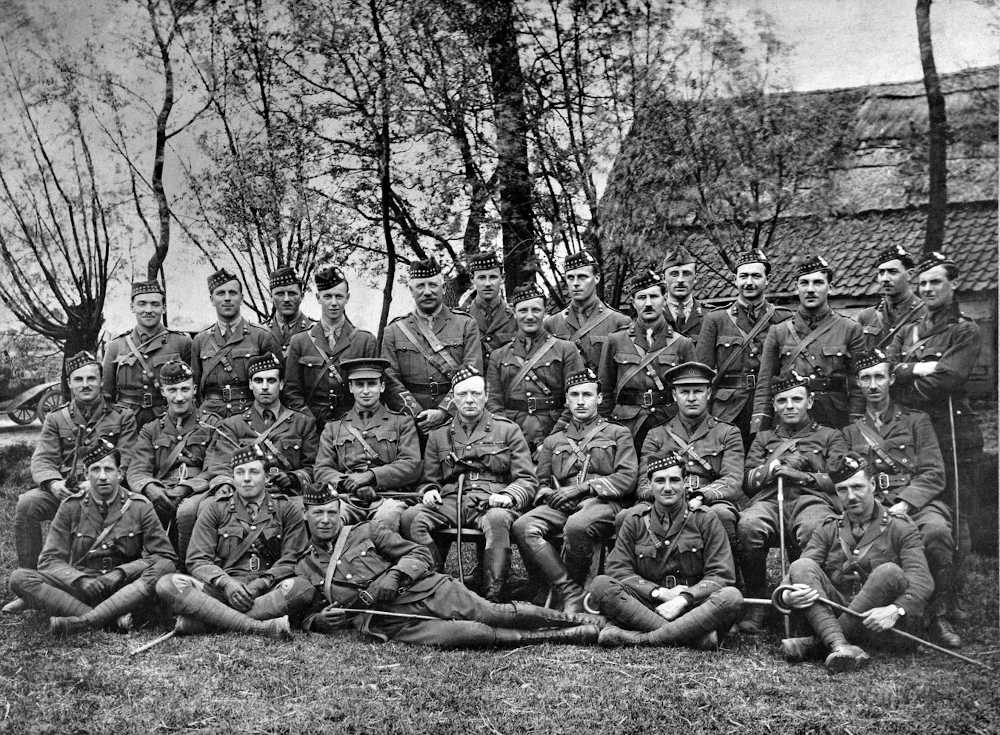ACADEMICS are appealing for information about Winston Churchill’s connection to Scotland after saying he should be a “celebrated hero” and more widely recognised in the country.
The International Churchill Society (ICS) is appealing for notes, diaries and photographs about the former prime minister and wartime leader’s life north of the border as part of a campaign to honour his memory in Scotland.
Despite Churchill having had many other personal and professional connections with Scotland, there is little in the country today to mark his presence
The official society studying the life and work of Winston Churchill has published an edition of its journal Finest Hour dedicated to Churchill and Scotland with a foreword by former Prime Minister Gordon Brown.
Allen Packwood, Director of the Churchill Archives, said:“Churchill is often thought of and referred to as a quintessentially English figure, but this overlooks a multitude of Scottish connections. I am certain that there is new material awaiting discovery in attics and basements that will shed more light on his reception, connections and activities in Scotland.
“We’re delighted to start that process with our dedicated team of academics and enthusiasts, and this is a conversation that we’re delighted to begin with Scotland and, indeed, the world.”
The International Churchill Society (ICS), the official Churchill society founded in 1968, is among the first to collate and consider Churchill’s numerous but not always well-known connections to Scotland.
Churchill said that the three most important things he received from Scotland were his wife, his constituency, and his regiment.

During the First World War, he commanded the 6th Battalion of the Royal Scotts Fusiliers on the Western Front in 1916.
His two leading officers were both future Scottish political leaders. Andrew Dewar Gibb, a founding member and subsequent leader of the SNP (1936–1940) was Churchill’s adjutant, and Archibald Sinclair, a future leader of the Liberal Party (1935–45), was his second-in-command.
Churchill was the Liberal MP for Dundee for fourteen years. First elected in 1908, he was re-elected to the seat four times before finally losing in 1922.
The same year Churchill was elected to Dundee, he married Clementine Hozier, a granddaughter of the tenth Earl of Airlie.
In 1912, Churchill was among the first senior British politicians to call for Scottish home rule and UK federalism.
He received his first government appointment from Scottish prime minister, Sir Henry Campbell-Bannerman in 1906. He was close friends with the former Prime Minister Lord Rosebery, in his time a highly regarded Scottish politician.
The International Churchill Society is launching a fresh appeal for new stories, facts, photos, and diaries about Churchill’s time in Scotland to expand the field of study further. The team is looking to publish a book in the coming year.
Gordon Brown, former British prime minister: “That is why this set of essays in Finest Hour must start to rectify this and rescues Churchill’s Scottish connections from the condescension of posterity.”
David Freeman, the editor of Finest Hour, said: “It’s so rare to find something new to say about Churchill and lo and behold it was right in front of us. There’s a compelling case that England’s greatest Englishman should also be a celebrated hero in Scotland.

